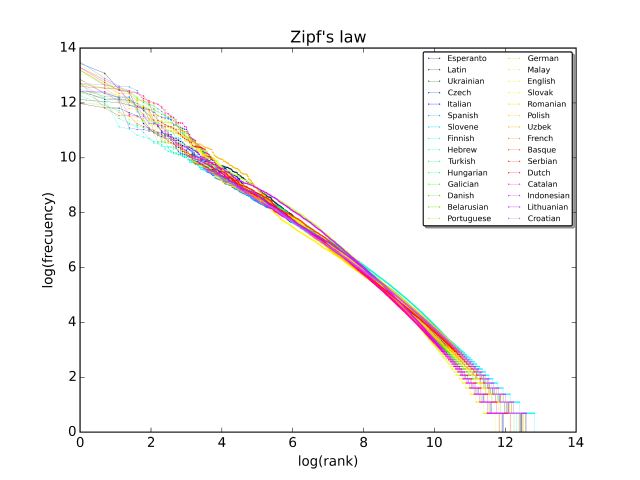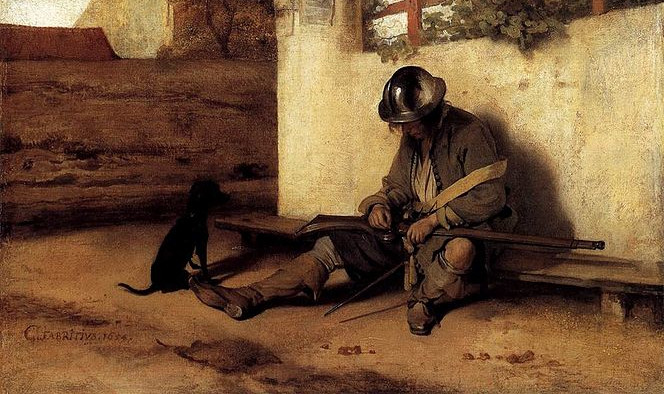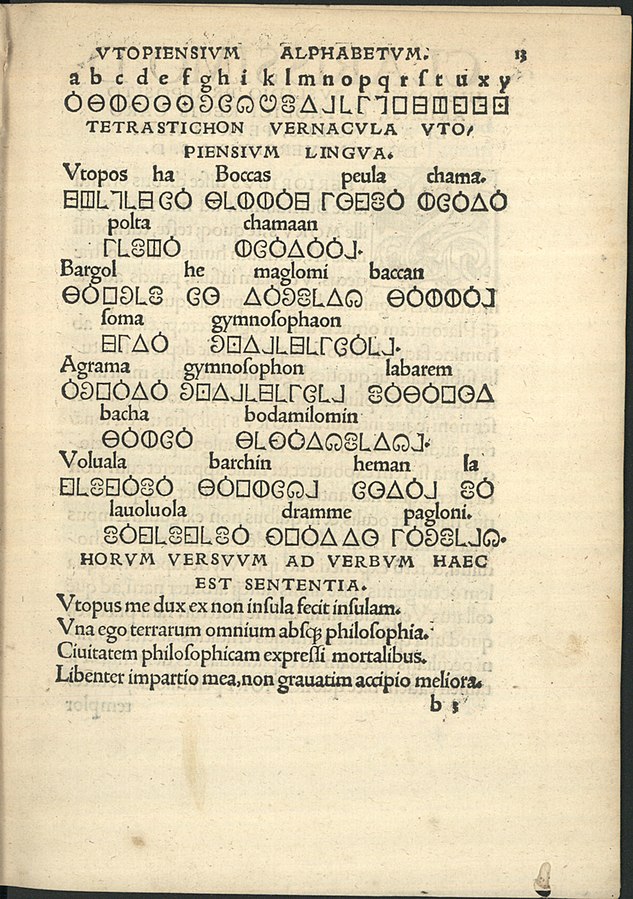
In any language, the most frequently used word occurs about twice as often as the second most frequent word, three times as often as the third most frequent word, and so on.
In American English text, the word the occurs most frequently, accounting for nearly 7% of all word occurrences. The second most frequent word, of, accounts for slightly over 3.5% of words, and so on.
This pattern obtains even in non-natural languages like Esperanto. It’s named for American linguist George Kingsley Zipf, who popularized it.
12/24/2021 UPDATE: Apart from languages, the law is observed in measurements of the citations of scientific papers, web hits, copies of books sold, telephone calls, the magnitude of earthquakes, the diameter of moon craters, the intensity of solar flares, the intensity of wars, and the populations of cities. See this paper. (Thanks, Snehal.)




